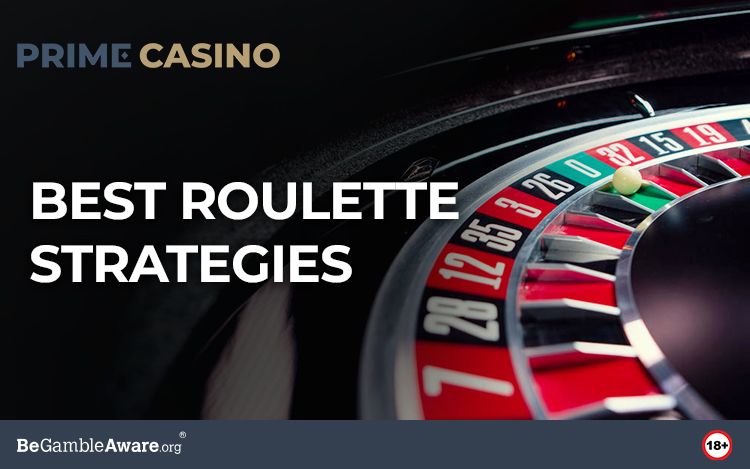Even if a player has never visited a casino or logged into an online casino, they will likely recognize the classic game of roulette in any setting. Roulette boasts a rich cultural history, originating in eighteenth-century France and featuring in iconic sequences of popular films where characters place large, high-stakes bets. Nowadays, players can enjoy roulette online.
Numerous roulette betting techniques have been developed throughout the years, each promising a range of benefits, such as bankroll management. It is important to mention, before we begin our journey into roulette strategies, that roulette is a game of chance and the house will always have the edge. Therefore, there is no best strategy, or legitimate method to predict winning outcomes.
Continue reading to learn more about the most popular Roulette Strategies you can try out in 2024.
8 Most Common Roulette Strategies
With a history spanning over 300 years, it is understandable that statisticians, math geniuses, and serious gambling fans have developed many metrics that they believe give them the edge against the roulette wheel. Characters like these are part of what makes casino history so interesting, but this is a conversation for another article.
The majority of betting systems can be classified as positive or negative progression systems. What this refers to is what the player does when presented with win/loss situations. A negative progression system requires the player to increase or modify their wager when faced with a losing outcome, while positive progression systems require the same when a winning outcome is achieved.
Naturally, for the sake of brevity, we’ve hand-picked the most common, well-known, and well-used roulette betting strategies that you might come across when playing roulette, a popular table game, in 2024.
1. Martingale Roulette Strategy
The Martingale Strategy is a negative progression betting system that works best when playing games with 50/50 bets, like roulette. The Martingale System originated from John H. Martindale, a casino proprietor in eighteenth-century London, who encouraged customers to double their wagers after losing. Over time, the name Martindale evolved into Martingale.
The Martingale System's simplicity is one of the reasons it is so well-liked; with no additional calculations required that could interfere with the simple pleasure of playing roulette.
The Martingale System entails a player just doubling their wager upon each loss and "resetting" it to their starting bet upon a winning outcome. For instance, if you bet £1 and lose, you’ll bet £2 the next time. Lose again, it'll drop to £4. Your £4 wager will return to £1 if you win. This approach is based on the idea that players should eventually be able to make up or surpass their losses.
2. Oscar's Grind Roulette Strategy
The Oscar's Grind strategy, introduced in the 1965 book 'The Casino Gambler's Guide,' is a cautious approach where players aim for small wins in each session. Also known as Holyes Press, it begins with players choosing a unit value from their bankroll.
The method starts with a one-unit wager. If it wins, the cycle ends with a one-unit profit. If it loses, the next bet remains at one unit until a win, at which point the bet is increased by one unit. The cycle continues until a one-unit profit is achieved, signaling the end of the cycle and the start of a new one. This strategy involves doubling the bet after each win while maintaining the same bet after losses, emphasizing disciplined and incremental gains.
3. D’Alembert Roulette Strategy
The D'alembert betting strategy was first proposed as a mathematical formula in the late 1700s by the French mathematician of the same name. The D'alembert system follows a negative progression method that is considered less aggressive than the Martingale system as players increase their stake by a predetermined unit rather than doubling their stake; making the method more accessible to smaller bankrolls.
The D'alembert system requires you to select an initial wager and a unit value. For our explanation, the initial wager will be £5, and the unit value will be £1. You increase your wager by one unit, (£1 in our case), if you lose, for a total bet of £6 and keep your original £5 wager if you win. If you lose again, increase the bet to £7, and so on, until you achieve a winning outcome after which the bet reduces by one unit meaning in our case, the wager becomes £6.
4. James Bond Roulette Strategy
One of the most distinctive roulette betting systems is the James Bond Strategy. The method, which employs a flat betting structure, works best on a typical European roulette table but may be used across all variants. Of the 37 numerals on the wheel, 25 are covered by the system in varying levels. It is modelled after the strategy that James Bond employs when he plays roulette in the beloved book Casino Royale.
Since the James Bond Strategy is flat, players always place the same bet formation every round.
Traditionally this consists of wagers of £14 on high numbers 19–36, £5 on a double street configuration covering 13–18, and a £1 wager on 0.
Of course, this wager can be scaled so a £1 wager would see a 5p bet on 0, 25p on 13-18, and 70p on 19-36.
5. Labouchere Roulette Strategy
The Labouchere System, also known as the Split Martingale or Cancellation System, is attributed to British aristocrat Henry Labouchere. It was designed for roulette's even-money bets like red/black.
Players set a winning goal, say £10, and create a number sequence (e.g., 1, 2, 4, 1, 2). Wagers are determined by adding the first and last numbers of the sequence, starting at £3. If you win, these numbers are crossed out; if you lose, the loss value is added to the sequence. This process continues until reaching the goal or cancelling out the entire sequence.
6. Paroli Roulette Strategy
The Paroli system was formed between the 16th and 18th centuries and has connections to the scientific figure Blaise Pascal. Sometimes referred to as the ‘Reverse Martingale’, this is a positive progression system where if you win you double your wager. Achieving three wins in a row is the main goal of this system, after which players revert to their starting stake.
For instance, the player selects a £1 base wager. The wager stays at £1 in the event of a loss while the wager doubles to £2 in the event of a winning spin. Three consecutive winning spins result in a stake reset to £1.
7. Andrucci Roulette Strategy
The Andrucci roulette technique is based on the chaos theory and is a high-risk tactic that states that although roulette is a game of chance, numbers will eventually go through stages where they occur more frequently.
This system requires players to make a large amount of 'observation wagers' (at least 30-37 times) on random wagers including odd or even, red or black, and 1-18 or 19-36. Record all outcomes, make note of the numbers which have appeared most frequently and then start placing straight-up bets on those numbers. Keep making the same wager for the next 30-37 spins or so. As you can see, the Adrucci system is one of the most risky and costly betting strategies.
8. Fibonacci Sequence Roulette Strategy
The Fibonacci sequence, dating to 200 BCE but popularized in the 13th century by mathematician Fibonacci, is a series starting with 0, 1, 1, 2, 3, 5, 8, and so on. Each number is the sum of the two preceding numbers. In roulette, it's used as a negative progression betting system.
Players start with a £1 unit. If they lose, they move to the next number in the sequence, betting £1 each time. After consecutive losses, bets increase to £2, £3, £5, and £8. Winning moves back two numbers. For example, after winning at £8, the next bet reverts to £3. This system aims to recover losses with smaller incremental bets.
Factors That Can Affect Roulette Strategies
The fact that no roulette betting method can guarantee or predict wins is among the most crucial things players should understand. Roulette is a game of chance, meaning outcomes are random and every spin has an equal chance of winning or losing, independent of the type of wager made.
When seated at live roulette tables, or when placing bets at a physical casino, it is imperative that players gamble safely, as some betting strategies can make it tempting to fall into reckless gambling practices like chasing losses. In addition, players must understand the variables that may affect the betting strategy they have selected.
Factor #1: The Version of Roulette You Pick
The kind of roulette you're playing can have the biggest impact on your betting strategy. European Roulette, with a house edge of about 2.70%, generally has far better odds. When compared to American equivalents, this percentage is about 5.25%.
Because all even money wagers will be recorded as losses, American Roulette wheels have an additional zero, which is the pocket that benefits the casino the most. For this reason, many bettors prefer to use their betting strategies on European or French Roulette wheels.
Factor #2: Watch Out for Unique Rules
Certain roulette variants have special rules that players can use to tailor their approach. The "En Prison" rule that applies to French Roulette tables is one such rule that players may need to consider. Lightning Roulette is another excellent way to see how different the rules may be. In this variant, the possible wins are multiplied by a random number. To take advantage of the special rules, players may search for tactics centred on straight-up bets when playing a game like this.
Factor #3: Consider the Table Limits
Before placing your bets, you should review the table restrictions when playing roulette for real money. Many tables have ranges starting from £1 up to £10,000 (though some variants may offer smaller or larger stakes). A large maximum bet and corresponding bankroll are necessary for some strategies, such as the Martingale approach. With this approach, if you pick a roulette game with higher minimum betting limits, for our example let's say £10. One loss in the Martingale system doubles this to £20, then £40, then £80, then £100, meaning that in just five consecutive losses, you've spent £250, which is more than a lot of casual players' entire bankroll for their session.
Factor #4: Consider What Type of Player You Are
As you can see from the strategies explored above, the methods they employ vary greatly, just like the many different player types in casino games, including live casino environments. Therefore, you should consider your unique tastes and preferences when selecting a strategy. For example, if you’re a player who likes to minimize risk as much as possible, then Oscar’s Grind might be perfect for you. Conversely, if you love taking risks, then the Andrucci strategy might be your best bet. Similarly, if you have a small budget, the D’Alembert strategy is likely a better choice of negative progression system than the more aggressive Martingale strategy.⚠️ Important Reminder
Although employing a strategy can feel liberating and even empowering, it's crucial to remember that no plan, technique, or strategy will guarantee that you will turn a profit or predict winning outcomes.
Casino games are meant to be played as a fun occasional pastime, and not a legitimate way of making money. The house always prevails in the long run, which is why there is a house edge. If you keep this in mind, the aforementioned strategies can make great starting points for playing roulette or can provide a refreshing new way to play for seasoned players.
Any betting strategy should be used in combination with responsible gaming practices. Always set a budget and a time limit for your session and stick to it. Never wager more than you’re willing to lose, and if you notice your mood turning negative, step away and end your session early. Remember, these principles are fundamental to responsible gaming at Prime Casino.FAQs on Roulette Strategies
Some frequently asked questions regarding roulette betting strategies are answered below:
Do roulette strategies fail?
No roulette strategy can state that it is ‘foolproof’ or guarantees wins. Strategies and systems are based upon statistical averages or consistent responses from the player to mitigate factors (such as poor gameplay decisions) which could increase the house edge. All casino games are subject to chance, making outcomes completely random, therefore, even the best strategy will fail when presented with random chance outcomes.
What is the most used strategy by roulette players?
The Martingale Strategy is probably the most well-known and well-used strategy by roulette players, with the similar, but less aggressive D’alembert system being most popular with beginner or lower-bankroll players.
What roulette strategy is recommended for beginners?
Before dabbling with any strategies, we recommend players first learn about and enact responsible gaming practices, and test out a selection of strategies on free-play games. In general, however, due to requiring smaller bankrolls and more conservative betting responses, the D'alembert and Oscar’s Grind system would work well for beginners. As it covers a lot of segments of the wheel, a scaled-down version of the James Bond system might also prove suitable.
Is it ok to use a strategy when playing roulette?
Yes! As no roulette strategy can guarantee or predict wins (if any can or does it is likely illegal and/or the casino is rigged) they are perfectly acceptable to use. It is up to the player whether or not they decide to use a strategy within their gameplay.
What is the difference between a roulette strategy and a roulette betting system?
A roulette strategy is an overall plan that a player uses to ensure their gameplay is optimal and their projected RTP (return to player) is as high as possible. Factors of this may include selecting optimal roulette variants, or games with a specific betting range suited to their playstyle. A betting strategy is another piece of the players' overall roulette strategy, used to dictate how players form their wagers and manage their bankroll.








